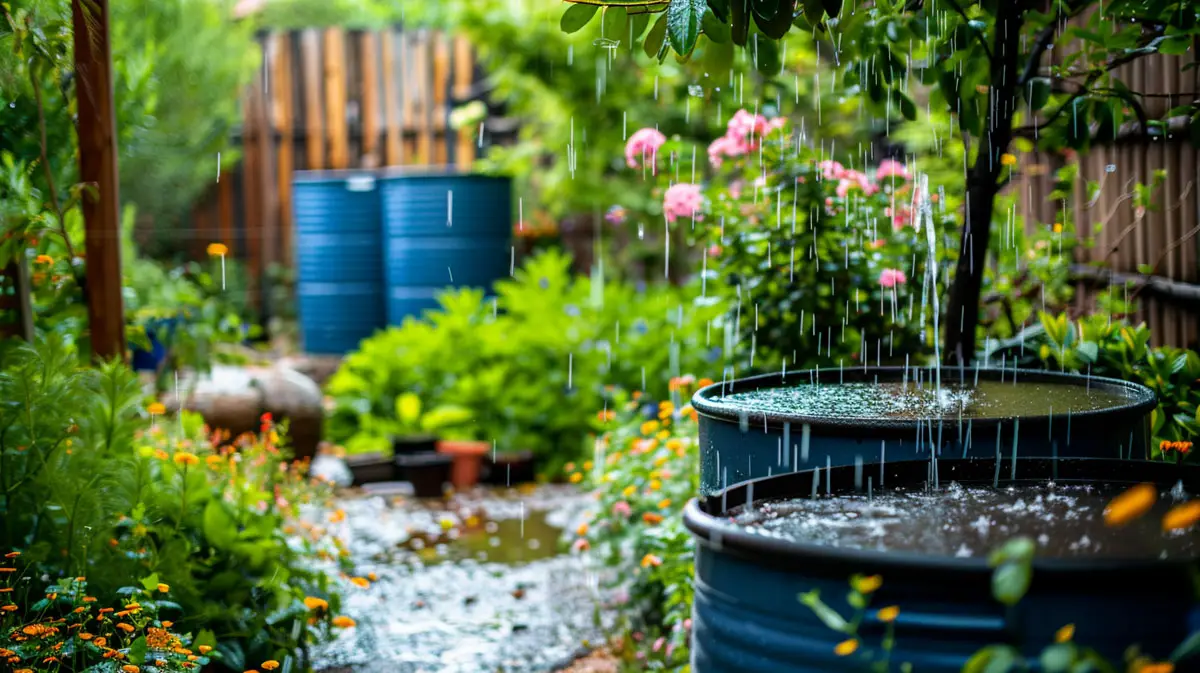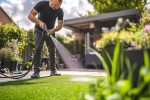Innovations in Home and Garden Tech for an Eco-Friendly Lifestyle

Eco-friendly living is more accessible than ever, thanks to cutting-edge innovations in home and garden technology. Imagine having a solar heated water bowl for your pets, which uses renewable energy to keep water at an optimal temperature. This is just one example of the remarkable products designed to promote a sustainable lifestyle. In this article, we will explore various innovations that can help you create an eco-friendly home and garden. From energy-efficient appliances to smart gardening tools, these technologies offer practical solutions for reducing your environmental impact.
Solar Power Solutions for the Home
Solar power is a game-changer when it comes to sustainable living. One of the simplest ways to incorporate solar energy into your home is by installing solar panels. These panels can generate electricity, reducing your dependence on fossil fuels. Another handy solar-powered device is the solar water heater, which provides hot water without consuming electricity.
Solar lights are another great option for eco-friendly living. They can be used for outdoor lighting, saving on energy costs while enhancing the beauty of your garden at night. Solar chargers for electronic devices are also becoming more common. They are convenient, portable, and perfect for charging gadgets on the go. Additionally, solar water features, such as fountains and birdbaths, can add aesthetic appeal to your garden while being kind to the environment.
Energy-Efficient Appliances
Switching to energy-efficient appliances is one of the most significant steps you can take to reduce your home’s energy consumption. Energy-efficient refrigerators, ovens, and washing machines use less electricity while providing the same performance as traditional appliances. These devices often have longer lifespans, saving you money in the long run.
Smart thermostats are another fantastic innovation. They allow you to control your home’s heating and cooling systems remotely, ensuring that energy is not wasted when you are not home. LED lighting is also an energy-efficient choice. LED bulbs consume less electricity and last longer than traditional incandescent bulbs. Finally, consider energy-efficient dishwashers and dryers. These appliances use less water and electricity, helping you conserve resources and reduce your utility bills.
Smart Gardening Tools
Gardening can be both rewarding and sustainable with the right tools. Smart gardening tools, such as automated watering systems, ensure that your plants receive the right amount of water without waste. These systems can be programmed to water your garden at specific times, making them perfect for busy lifestyles.
Smart soil sensors are another innovation in garden technology. These sensors monitor soil moisture levels and send alerts to your smartphone when your plants need water. This helps prevent overwatering and ensures that your garden thrives. Furthermore, smart lawn mowers can keep your lawn looking pristine without using harmful gasoline. These electric mowers operate quietly and efficiently, requiring minimal maintenance.
Considering composting? There are smart composters available that speed up the decomposition process, turning kitchen scraps into nutrient-rich compost for your garden. This reduces waste and enriches your soil, promoting healthy plant growth. Lastly, vertical gardening systems are an excellent choice for small spaces. These systems allow you to grow herbs, vegetables, and flowers vertically, maximizing your garden’s potential.
Water Conservation Technologies
Conserving water is crucial for an eco-friendly lifestyle. There are many technologies available to help you save water at home. Low-flow showerheads and faucets are simple changes that can make a big difference. These fixtures use less water without sacrificing performance.
Rainwater harvesting systems are another effective way to conserve water. These systems collect and store rainwater, which can be used for irrigation and other non-potable purposes. Greywater recycling systems are also worth considering. They reuse water from sinks, showers, and washing machines for irrigation, reducing the demand on your home’s water supply.
Smart irrigation controllers are perfect for managing your garden’s watering needs. These devices adjust watering schedules based on weather forecasts and soil moisture levels, ensuring that water is used efficiently. Drip irrigation systems are another water-saving solution. They deliver water directly to the roots of plants, reducing evaporation and runoff. Pair these with a rain sensor, which will prevent irrigation during rain, to create an even more efficient watering system.
Reusable and Sustainable Materials
Using reusable and sustainable materials in your home and garden can significantly reduce your environmental footprint. Bamboo is an excellent example of a sustainable material. It grows quickly and can be used for a variety of products, from flooring to kitchen utensils. Recycled plastic is another versatile material. Many garden products, such as planters and outdoor furniture, are made from recycled plastic, reducing waste and conserving resources.
Consider using reclaimed wood for your home improvement projects. It adds character and charm to your home while preventing perfectly good wood from going to waste. Natural fibers, such as wool and cotton, are also great choices for eco-friendly living. They are biodegradable and often produced with fewer chemicals than synthetic materials. Purchasing products made from organic and sustainably sourced materials is another way to support an eco-friendly lifestyle.
Finally, reduce single-use plastics by opting for reusable alternatives. Invest in reusable shopping bags, water bottles, and food storage containers. These small changes can have a significant impact on reducing plastic waste. Additionally, look for products that have minimal or recyclable packaging to further decrease your environmental footprint.
Benefits of an Eco-Friendly Lifestyle
Living an eco-friendly lifestyle offers numerous benefits, both for you and the environment. One of the most significant benefits is the reduction of your carbon footprint. By using renewable energy sources and energy-efficient appliances, you can lower your greenhouse gas emissions. This helps combat climate change and promotes a healthier planet.
Eco-friendly living is also cost-effective in the long run. While some sustainable products may have a higher upfront cost, they often pay for themselves through lower utility bills and reduced maintenance costs. Additionally, sustainable living promotes a healthier lifestyle. Using non-toxic, natural materials in your home can improve indoor air quality and reduce exposure to harmful chemicals.
Furthermore, an eco-friendly lifestyle fosters a sense of community and responsibility. By making sustainable choices, you contribute to a larger movement towards environmental conservation. This can inspire others to adopt eco-friendly habits, creating a positive ripple effect. Lastly, caring for the environment can be deeply fulfilling. Knowing that your actions are making a difference can provide a sense of purpose and satisfaction.
Conclusion
In conclusion, innovations in home and garden technology make it easier than ever to live an eco-friendly lifestyle. From solar heated water bowls to smart gardening tools, these products offer practical solutions for reducing your environmental impact. By making small changes, such as switching to energy-efficient appliances and conserving water, you can contribute to a healthier planet. Embrace reusable and sustainable materials to further reduce waste and support an eco-friendly lifestyle. The benefits are numerous, including cost savings, improved health, and a reduced carbon footprint. By choosing to live sustainably, you can make a positive difference for yourself and future generations.










